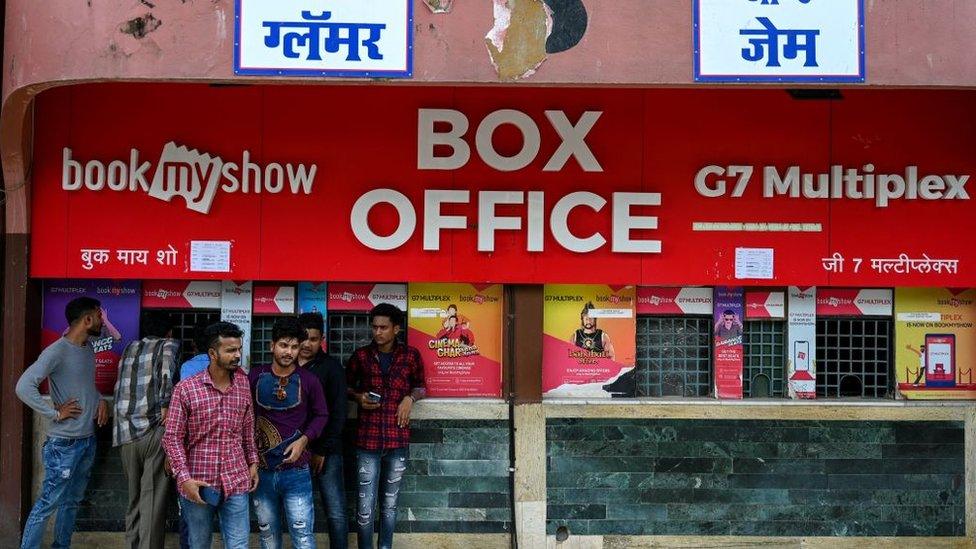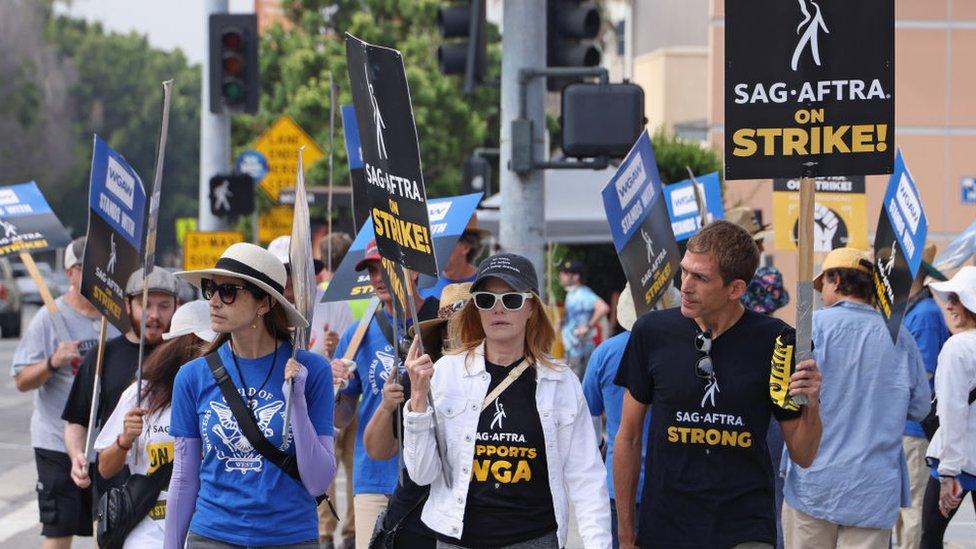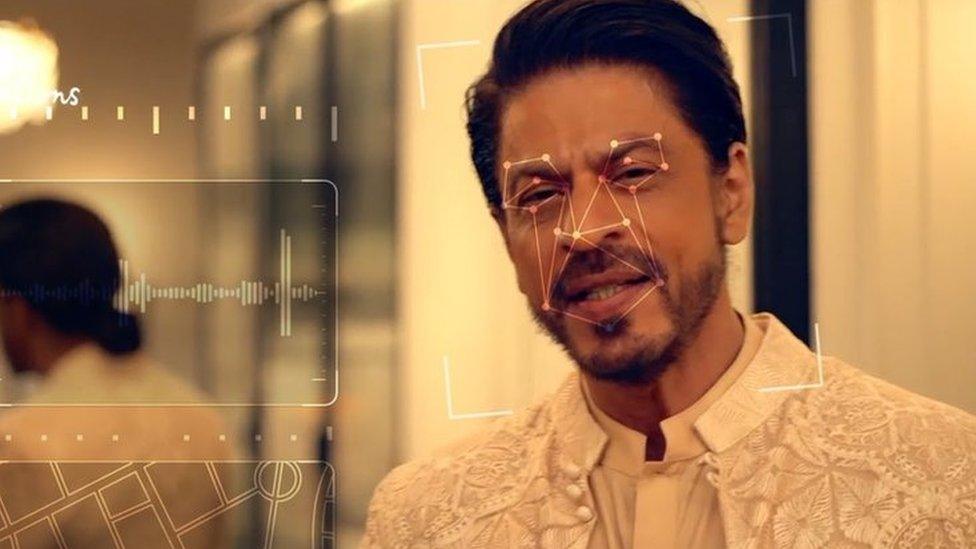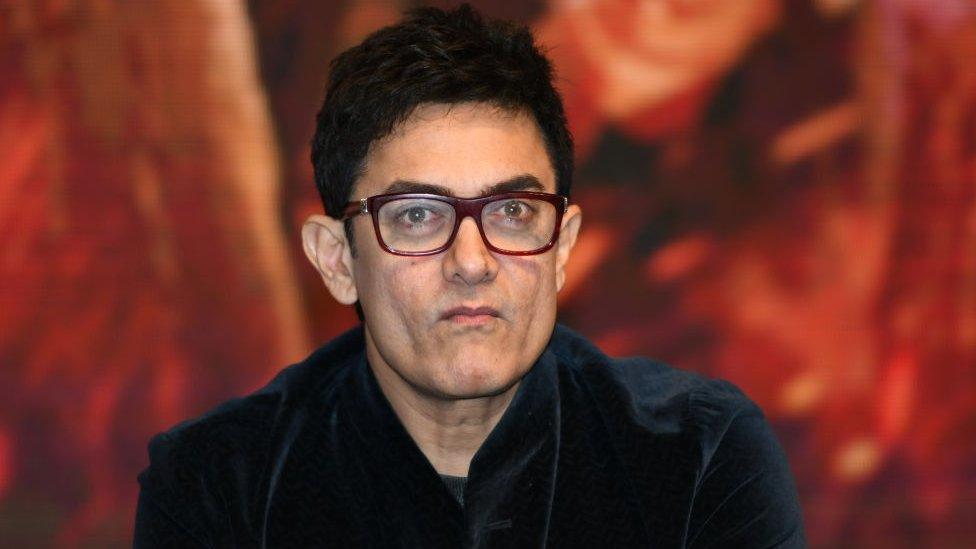After Hollywood, Bollywood fights 'unfair' contracts
- Published

Bollywood writers say the harsh clauses in their contracts affect their creativity
Writing is a lonely business, and for many in India's Bollywood, not a profitable one.
Unless a screenwriter lands a big break - a successful film where they also get credit. But until then, money and opportunity are often in short supply.
A major reason, writers say, is the "harsh contracts" they have to sign, which they allege are designed to protect the interests of the producer.
"Most contracts have arbitrary termination clauses and offer paltry fees, especially to newcomers," says Anjum Rajabali, a senior member of the Screenwriters Association (SWA) - the Indian equivalent of the Writers Guild of America (WGA) - which has more than 55,000 members across the country.
"They also don't pay writers for reworking drafts and give producers the right to decide whether a writer should be credited for their work or not," Mr Rajabali says, adding that some contracts even ban writers from approaching the union if there's a dispute with the producer.
The SWA has advocated for members' rights for decades, but recently, it has been exploring more assertive ways to reduce the alleged power imbalance between producers and writers.
In December, it held a meeting to discuss changes writers would like to see in their contracts. More than 100 writers, including some big Bollywood names such as Abbas Tyrewala and Sriram Raghavan, attended.
"The plan now is to invite producers to sit across the table and work with us to make contracts more equitable," Mr Rajabali says, adding that "most producers agree" that writers need better pay and some kind of job security.
The BBC has emailed questions to the Producers Guild of India, but has not received a response.

Last year, hardline Hindu groups raked up a controversy over the colour of a bikini in a song in the movie Pathaan
The successful outcome of a months-long writers' strike in the US, external last year has bolstered the confidence of Indian screenwriters to put forth their demands. The strike, which brought Hollywood to a halt, forced producers to agree to better terms for writers.
But the movement in India is still in a nascent stage, and experts say that something as drastic as a strike isn't likely soon. This is partly because of the way the industry functions, where good relationships are key to getting work, and because of the sheer number of people waiting to catch a break.
It's also because contracts for writers are a relatively new phenomenon in India. Up until the mid-2000s, writers relied on the "word" of a producer when it came to getting paid. Even the amount for a script was negotiated orally and producers would pay writers irregularly rather than in steady instalments.
"After big corporations started funding studios, writers started being given contracts. But as producers have tried to increase profits and cut down on financial risks, the contracts have become harsher and more unreasonable," Mr Rajabali says.
He points out a particularly unfair clause many producers have begun adding to their contracts - that a writer will have to indemnify the producer for any losses incurred due to protests or controversies sparked by a film.
He says this is because of increasing instances of hardliner groups targeting films for "hurting religious sentiments". Protesters have torn posters, external, destroyed film sets, external and filed complaints, external over dialogues or scenes they find offensive.
As a precaution, producers have started getting lawyers to approve scripts, Mr Rajabali says, adding that it is unfair to ask writers to "pay for losses after you have bought the script".

The WGA reached a deal with Hollywood studios after 146 days on strike
Writers say such clauses put them in a vulnerable position and that the insecurity affects their creativity.
Hitesh Kewalya, a Mumbai-based screenwriter, remembers how difficult his life was before he managed to get a foothold in the industry.
He had quit his job in advertising to pursue scriptwriting, but struggled to pay rent.
"At one point, I had written seven movie scripts, but because the films didn't get made, I wasn't paid for any of them," Mr Kewalya says.
He adds that things haven't changed much for today's writers and many quit the industry because it's hard to make a living.
But there's a sliver of a silver lining, as some producers have begun taking corrective steps.
Nikhil Taneja, who earlier worked in a senior role at one of Bollywood's biggest film production companies, says that he has started offering remuneration proportionate to the scale of a project to writers working with his own company, Yuvaa. This means that if a platform increases the budget for a project, the writer's fee is also increased - a rare clause in the entertainment industry.
Mr Taneja admits that writers' contracts are exploitative, but says this is more because of the nature of filmmaking.
"Filmmaking is a risky business because there's no science to it. A film with the best director and biggest stars can flop or struggle to get a release. And it's the producer who has to bear the loss," he says.
It's true that producers enjoy the biggest share of profits when a film does well, but when it doesn't, they still have to pay people.
He says that the proliferation of streaming platforms has made it even more difficult for films to be discovered and watched, let alone become a hit.
Another reason is the way films are made - often, the script changes during the shooting with inputs from actors, directors or dialogue writers. It can change drastically during editing too.
"So the finished product is very different from the initial script and that's why producers pay a major portion of the writer's fee towards the end of a project," Mr Taneja says.
But he says that this does not mean that things should continue as they are and that writers - whose scripts are the building blocks of a film - deserve to be treated better. "But this will happen only when writers come together and demand their rights. Only then will the industry take notice," he says.
Meanwhile, Mr Rajabali says the SWA will continue to press for its demands, which include giving all writers at least a minimum basic fee, due credit and ridding contracts of exploitative termination and indemnity clauses.
"The fight is going to be a long one, but writers are known to be perseverant people."
BBC News India is now on YouTube. Click here, external to subscribe and watch our documentaries, explainers and features.

Read more India stories from the BBC:

- Published18 December 2023

- Published20 January 2023

- Published6 August 2022
